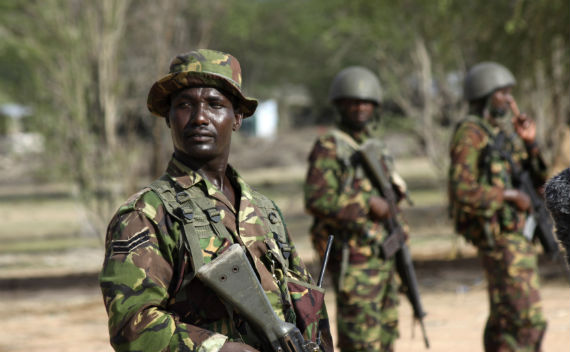Somalia: Is Collective Military Action the Answer?
More on:

This is a guest post by Mohamed Jallow. He is an interdepartmental associate at the Council on Foreign Relations and graduate of the CUNY Colin Powell Center for Policy Studies. Mohamed came to the United States as a refugee from Sierra Leone in 2003.
As Kenya’s invasion of Somalia approached its third week, smaller African nations—Djibouti and Sierra Leone—have upped their contribution to the African Union mission in Mogadishu. They are there partly to shore up support for the transitional government and AU forces, but mostly to take advantage of al-Shabaab’s vulnerabilities at a time when it is under duress. The United States has drones in the skies over Somalia, and there are indications that Ethiopia is preparing to engage any al-Shabaab forces that try to flee from the Kenyan army. With all these converging forces pressing on al-Shabaab, there is once again another opportunity to end the Somali conflict, at least from a military perspective.
Al-Shabaab has become a menace in the region, and the internationalization of its activities is becoming unbearable. The group has launched attacks in neighboring countries, including Kenya. The final straw came with incursions into Kenyan territory by al-Shabaab linked kidnappers, forcing the country to launch an offensive against militants it believes were directly threatening its lucrative tourism industry.
One might think that the African Union would take advantage of the Kenyan invasion. However, it has so far been unable to muster both the military manpower, and the political will to launch an offensive to get rid of al-Shabaab. Africa’s erstwhile heavyweights—Nigeria and South Africa— have been conspicuously absent. Nigeria actually promised to send troops but so far has not followed through.
If the AU manages to secure more troops and contributions from other countries, launching an offensive against al-Shabaab from the north could shrink the size of al-Shabaab controlled territory, and cut off its supply lines, effectively starving it of much needed resources to sustain a long fight. Simplistic as that may sound, there is real potential here for a military end to al-Shabaab’s dominance over Somalia, as well as removing the threat it poses to the transitional government and the AU forces protecting it.
While I am not a strong advocate for military action in many cases, a stronger and more forceful intervention by the African Union in this instance (with the blessing of the transitional government), especially when the Kenyan army and American drones are on the heels of al-Shabaab, is the best opportunity to end the decades long suffering in Somalia.
More on:
 Online Store
Online Store
